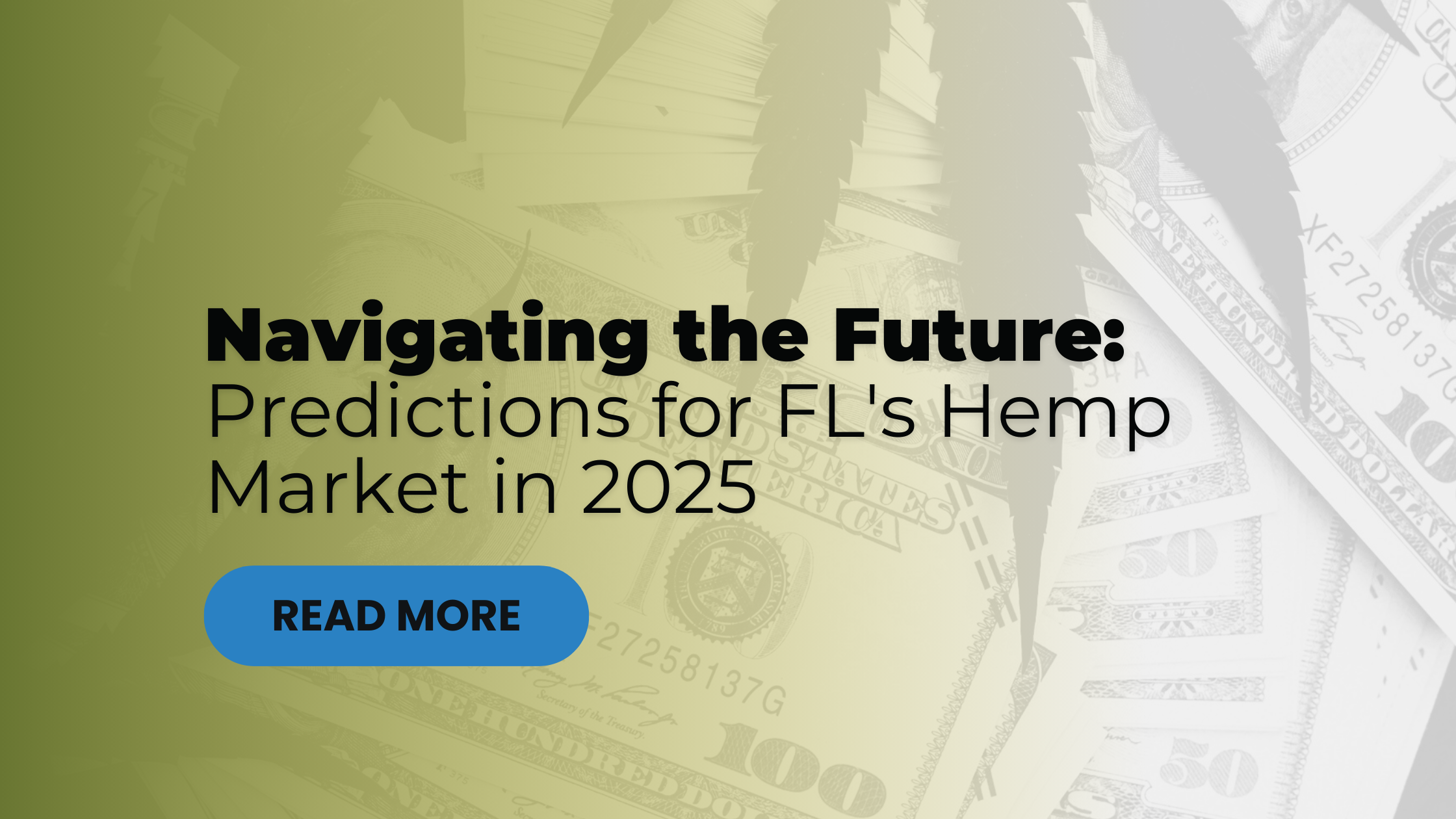
Navigating the Future: Predictions for FL's Hemp Market in 2025
With the rapid development of the national hemp industry and Florida's growing role within it, the Sunshine State is poised for significant opportunities by 2025. For farmers, investors, and policy makers, the time to act is now. By understanding the trends shaping the Florida hemp market, stakeholders can position themselves at the forefront of this burgeoning industry.
A Snapshot of Florida’s Hemp Industry Today
Since hemp cultivation was legalized in Florida in 2019, the market has gained momentum. According to the Florida Department of Agriculture and Consumer Services (FDACS), there are over 800 hemp cultivation licenses issued statewide. Florida farmers collectively manage more than 30,000 acres of hemp, ranging from industrial fiber to CBD-focused crops. This growth trajectory highlights the industry's potential while also emphasizing the importance of careful planning and strategic investments moving forward.
The Florida Healthy Alternatives Association (FHAA) has also been a key advocate, pushing for policies that support sustainable hemp farming and production. Pairing government enablement with farmer and entrepreneur innovation has positioned Florida as a leader in the national hemp landscape.
Predictions for Florida’s Hemp Market in 2025
Looking ahead, Florida's hemp industry is set for major changes and opportunities. Here’s what you should expect by 2025:
1. Market Growth Driven by Diversified Products
While CBD products initially dominated the hemp market, demand is now shifting toward diversified uses of hemp. Hemp fiber and grain for textiles, bioplastics, construction materials (hempcrete), and animal feed are likely to take center stage. Studies from Brightfield Group forecast significant growth in non-CBD hemp sectors, especially in states with favorable climates like Florida.
Farmers should look to diversify their crop yields to align with these shifts. Investors and policymakers, meanwhile, need to prioritize infrastructure for processing these alternative hemp products to meet projected demand.
Actionable Takeaways:
- Farmers: Explore hemp varieties optimized for fiber and grain production to reduce dependence on the volatile CBD market.
- Investors: Invest in processing facilities for industrial hemp applications, including textiles and construction materials.
- Policy Makers: Support broader legislation that fosters research and development for alternative hemp products.
2. Strengthened Supply Chain Infrastructure
One significant challenge facing the state’s hemp industry is the lack of localized processing facilities. Florida farmers currently face higher logistical costs shipping raw hemp out of state for processing. By 2025, we predict a dramatic improvement in supply chain capabilities, driven by increased private sector investment and grants from state programs.
The Florida Hemp Council and academic institutions like UF/IFAS are actively working on strategies to strengthen the supply chain, including partnerships with local businesses and co-ops to share resources. Farmers who collaborate early on these supply chain projects stand to benefit the most.
Actionable Takeaways:
- Farmers: Join local hemp co-ops to share access to processing facilities and distribution channels.
- Investors: Look into opportunities to build or partner on processing facilities to complete the hemp value chain in Florida.
3. Changing Regulatory Landscape
The regulatory landscape for hemp in Florida is expected to mature significantly over the next two years. Evolving policy frameworks at both the state and federal levels will likely impact hemp farming, processing, and distribution.
For example, federal regulation updates from the USDA or the FDA could clarify policies around cannabinoid concentrations, certifications, and product labeling. Local policies might also introduce stricter standards and licensing requirements, benefiting operators who prioritize transparency and compliance.
The ongoing advocacy by the Florida Healthy Alternatives Association (FHAA) is expected to influence these changes, ensuring that small and medium-scale farmers are not left behind.
Actionable Takeaways:
- Farmers & Investors: Stay informed about upcoming regulations and align your operations with best practices.
- Policy Makers: Strike the right balance between consumer safety and industry growth to ensure Florida remains competitive.
4. Rise of Sustainable Farming Practices
Sustainability will be a key focus for the Florida hemp market. Increasing demand for eco-friendly goods has placed hemp at the forefront of conversations around renewable resources. By 2025, Florida hemp farms will move toward more regenerative and water-efficient farming practices, driven by both necessity and market demand.
University-led research, especially from UF/IFAS, is paving the way by developing hemp varieties suited to Florida’s soil and climate while minimizing environmental impact.
Actionable Takeaways:
- Farmers & Policy Makers: Invest in education and incentives for sustainable farming techniques.
- Investors: Support hemp farms committed to sustainability—these will offer strong long-term ROI as consumer preferences shift.
5. A Thriving Hemp Community in Florida
Finally, the Florida hemp industry is expected to build a stronger, more connected community of farmers, producers, businesses, and customers. Organizations like the Florida Hemp Council and FHAA will lead initiatives that bring key stakeholders together through trade shows, educational webinars, and networking events.
This sense of collaboration will not only drive the industry forward but also create opportunities for advocacy, partnerships, and collective growth.
Actionable Takeaway:
- All Stakeholders: Join industry associations and participate in community events to stay informed and connected.
The Road Ahead
The Florida hemp market will undoubtedly face challenges as it evolves, from navigating regulatory changes to overcoming supply chain gaps. However, for those who act strategically, the opportunities are immense.
For farmers, this is your chance to diversify your crop portfolio and adopt sustainable practices. For investors, getting involved in hemp-based processing facilities and production infrastructure could yield strong returns. And for policymakers, building a balanced regulatory framework will ensure growth without compromising safety or ethics.
At the same time, organizations like the Florida Healthy Alternatives Association will remain vital in advocating for the needs of the hemp community. Together, these efforts will contribute to a thriving and competitive Florida hemp market that generates jobs, strengthens the economy, and positions the state as a national leader in innovation and sustainability.
Stay Ahead
Want to stay ahead in Florida’s hemp market? Subscribe to regular industry updates from the Florida Healthy Alternatives Association. Joining the conversation now ensures you’ll be well-positioned to reap the rewards by 2025.
Are you ready for the future of Florida hemp? Take action today and be a part of this growing industry!




